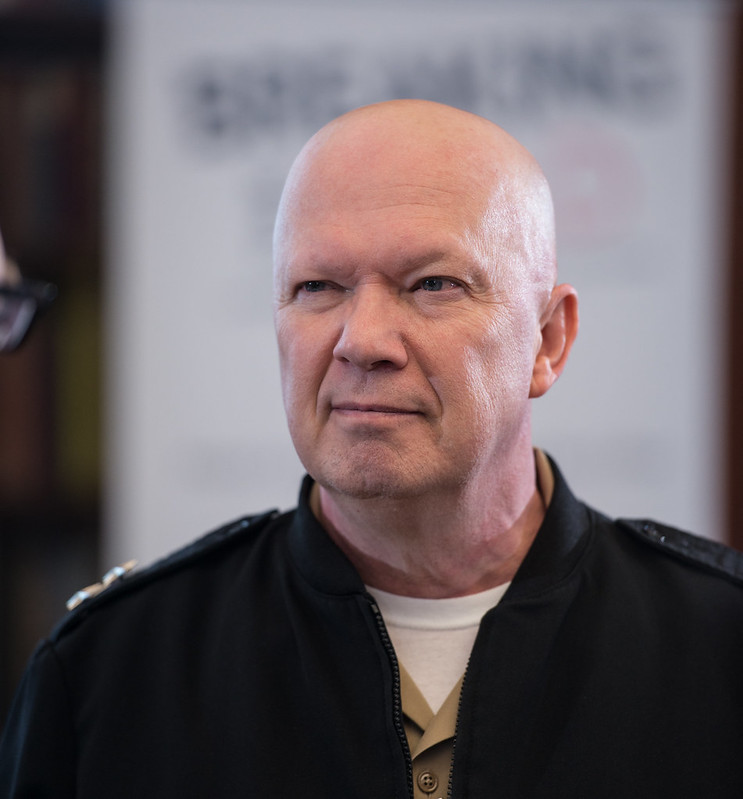Naval War College hosts 'Breaking the Mold' workshop


NEWPORT, R.I. – U.S. Naval War College (NWC) kicked off a two-day workshop titled “Breaking the Mold” in its Mahan Reading room, March 7. The event, attended by 58 people representing two dozen different organizations, was sponsored by the under secretary of the Navy, the Honorable Thomas B. Modly.
“This workshop is intended to begin discussion, inquiry and examination of how ‘war’ may evolve in the coming decades of the 21st century and what strategies might be needed to anticipate and respond effectively,” said John Jackson, NWC’s E.A. Sperry Chair of Unmanned and Robotic Systems, who helped organize the event along with Rear Adm. Jeffrey A. Harley, NWC’s president; Sam Tangredi, director, Institute for Future Warfare Studies and Harlan Ullman, NWC Foundation distinguished senior fellow.
“Since the days of Alfred Thayer Mahan, NWC has served as the birthplace and home of strategic thought for our nation’s the naval services. The college is tasked with considering innovative ways to deal with the challenges our national security forces and organizations will face over the next several decades. This workshop was conceivedto bring together a diverse set of critical thinkers, futurists and seasoned operators to break the mold of conventional thinking and develop a series of recommendations for senior leaders within the Navy and the Department of Defense,” said Harley.
Modly provided the broad outlines of the complex issues he faces everyday.
“Rising competition on the seas, hypersonics, cyber warfare, nuclear proliferation, Salafist-based violence, piracy, Russian revanchism, Chinese mercantilism,unflyable aircraft, $100 million fighters, not enough ships, swarming drones, artificial islands, $13 billion carriers, $12 billion submarines, escalating healthcare costs, deteriorated fleet readiness, constrained shipbuilding capacity, antiquated acquisition processes, unauditable financial statements----What is to be done? The answer to this question is not simple, but it can be condensed to a simple tagline ‘Break the Mold’!”
“This workshop was designed to begin to raise critical questions including ‘unknowns’ about the nature and character of future war to stimulate and provoke imaginative and even counter-intuitive thinking regarding strategic responses; to strengthen the ability for critical analytical thinking and assessment; to create a range of different possible strategies for dealing with future wars in all its forms with implications for active, reserve and guard force structure, composition and levels. Its purpose is to think about the future of war and the strategies necessary to respond to current challenges and challenges yet to come,” said Jackson.
“The expected outcome of this unique gathering is the development and distribution of a series of strategic and operational concepts that focus on four broad areas: a porcupine strategy of defense in Europe; a mobile maritime barrier in Asia; the increased reliance on special forces, unmanned systems and cyber; and possible reorganization of portions of the U.S. government to promote enhanced national security,” said Jackson.
Vice Chief of Naval Operations, Adm. William Moran attended the workshops closing plenary session and provided the participants with his vision of the types of agile naval forces that will be needed in the decades ahead to serve as the maritime shield for the nation.
A follow-on workshop is being planned for the fall of 2018.
